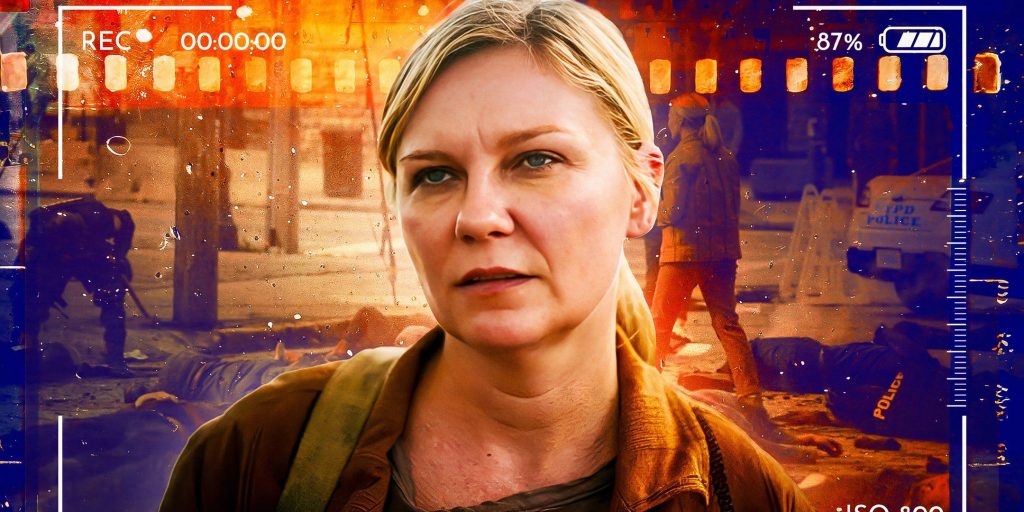
In the latest offering from Alex Garland titled Civil War, a startling moment arises when the character Lee makes the poignant decision to delete a single photograph. This choice, a reflection of her profound personal struggle, occurs after a traumatic event that underscores the emotional depth of the narrative.
Lee, portrayed by Kirsten Dunst, is a seasoned photojournalist battling the weight of her profession against the backdrop of a dystopian America. The film envisions a near-future scenario where a faction of states, including Texas and California, have severed ties with the union, resulting in a landscape rife with conflict and moral ambiguity.
As Lee navigates this harrowing reality, she finds herself accompanied by fellow journalists and friends, including the character Sammy. A pivotal moment transpires when Sammy heroically intervenes during a dangerous encounter, only to lose his life soon after. In the wake of this tragedy, a photo taken by Lee serves as a painful reminder—yet, in an act of defiance against the detachment often required by her role, she opts to delete it.
This decision encapsulates a significant transformation within Lee, illustrating her battle against desensitization and the emotional toll of her profession. Earlier in the film, she coldly responds to a proposition from her younger colleague Jessie about the ethics of photographing death. However, this contrasts starkly with her ultimate choice to erase Sammy’s last image, suggesting not merely a lapse in her professionalism but a reconnection with her humanity.
The act of deletion represents more than just a simple choice; it signals her desire to honor Sammy’s memory rather than reduce him to a mere subject of her craft. Lee’s journey in the film is marked by this internal conflict, demonstrating the precarious balance between the responsibilities of a journalist and the fragility of human life.
Furthermore, after facing the brutal realities that come with war and loss, she begins to question her career path and the meaning behind her work. Instead of continuing her once-unwavering pursuit of frontline action, she grapples with her fears and doubts, leading to a moment of self-reflection that resonates deeply with audiences.
Garland skillfully crafts a narrative that not only critiques the world of war photography but also paints a vivid portrait of the emotional scars borne by those who document violence and suffering. As the film progresses towards its shocking conclusion, Lee’s evolution—culminating in her tragic fate—serves as a haunting exploration of legacy and sacrifice. Ultimately, her journey acknowledges the cost of conflict, both on the battlefield and within the human heart.
Civil War is not just a tale of physical battles but a profound examination of the inner turmoil faced by those who bear witness to suffering. The complexities of Lee’s character drive this narrative forward, making her choices resonate long after the credits roll.




